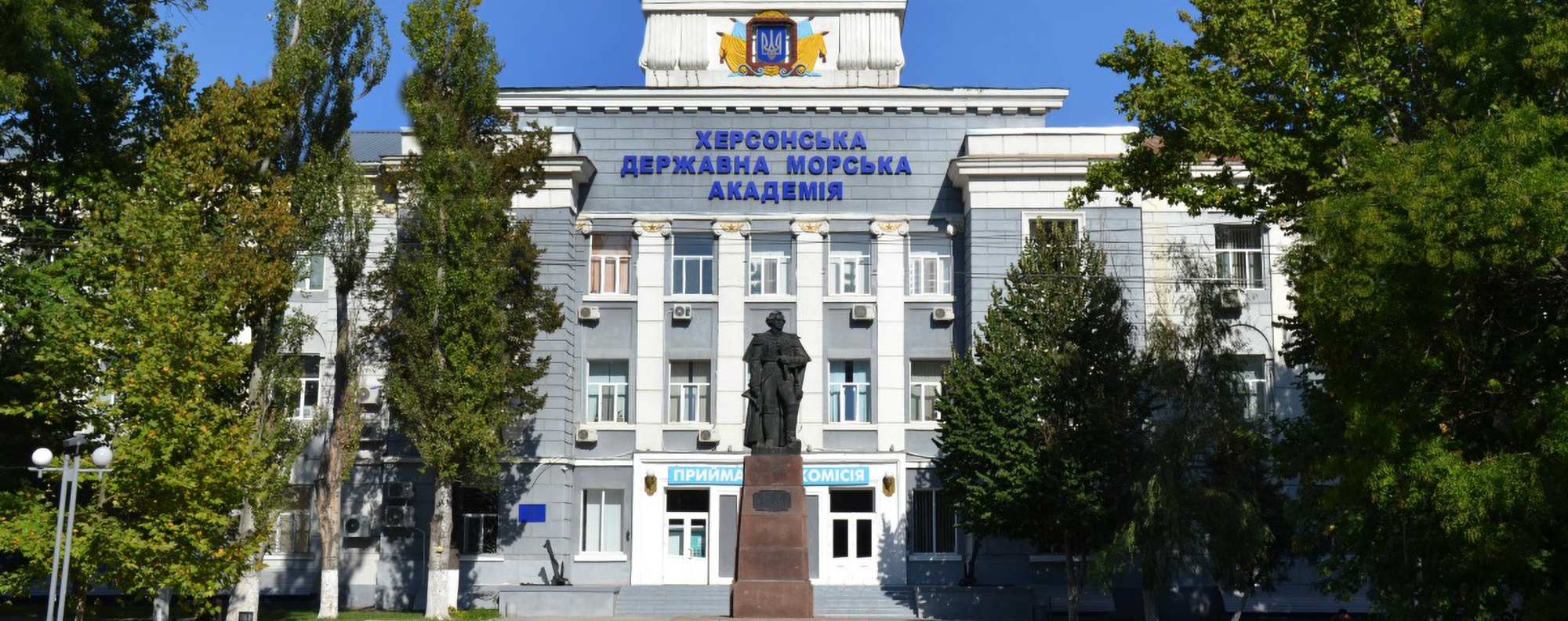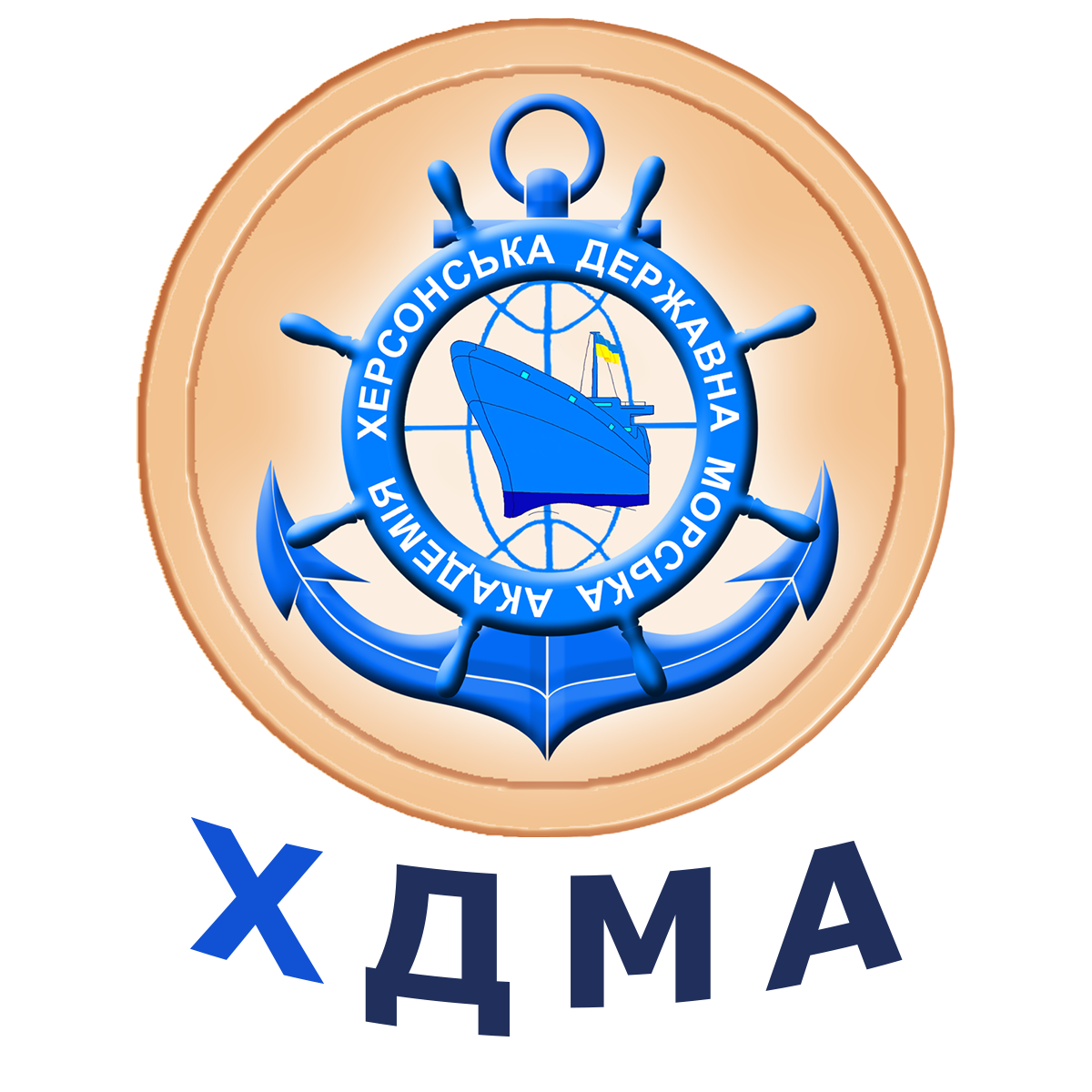Репозитарій
Ласкаво просимо до репозитарію Херсонської державної морської академії!
Репозитарій ХДМА – це електронний архів, що виконує функції накопичення, систематизації, зберігання та
забезпечення довготривалого відкритого доступу до праць професорсько-викладацького складу.

Фонди
Виберіть фонд, щоб переглянути його зібрання.
Нові надходження
Gamification in maritime English language assessment in the context of STEM education.
(Mukachevo State University, 2025-12-15) Юрженко А.Ю.; Yurzhenko A.Y.; Дягилева О.С.; Diahyleva O.S.; Кононова О.Ю.; Kononova O.Y.
Maritime English is one of the key tools in STEM (Science, Technology, Engineering, Mathematics) education of future ship engineers, as it provides access to technical literature and professional communication. The article’s goal was to find the ways to use gamification in Maritime English assessment. The research methodology was based on a combination of theoretical analysis of scientific works in the field of pedagogy and linguistic didactics, the study of international standards (in particular, STCW), as well as experimental verification of the effectiveness of implementing gamification in the process of formative assessment. The methods of pedagogical observation, questionnaires and analysis of the results of students’ educational activities were used. It was found that gamification, defined as the use of game mechanics in a non-game educational context, contributes to increasing motivation, activating cognitive activity and developing interdisciplinary competencies. Its integration into the assessment of maritime English allows you to simulate professional situations – communication in emergency conditions, preparation of technical reports, and interaction in an international crew. Such tasks develop not only linguistic, but also socio-communicative and cognitive skills important for the profession. The results of the study showed that gamification can transform traditional assessment and make it more flexible, student-centred and responsive to the requirements of the modern maritime industry. The practical significance of the research results lies in the possibility of their use in the maritime education system: in the training courses “English for Professional Purposes” in maritime academies and colleges, during the training and retraining of fleet engineering personnel, as well as in corporate training programmes for shipping companies.
Морська англійська мова є одним з ключових інструментів у навчанні майбутніх суднових інженерів за напрямом STEM (наука, технологія, інженерія, математика), оскільки вона забезпечує доступ до технічної літератури та професійного спілкування. Мета статті – знайти способи використання гейміфікації в оцінюванні рівня володіння морською англійською мовою. Методологія дослідження базувалася на поєднанні теоретичного аналізу наукових праць у галузі педагогіки та лінгвістичної дидактики, вивченні міжнародних стандартів (зокрема, STCW), а також експериментальній перевірці ефективності впровадження гейміфікації в процесі формувального оцінювання. Використовувалися методи педагогічного спостереження, анкетування та аналізу результатів навчальної діяльності студентів. Було встановлено, що гейміфікація, яка визначається як використання ігрових механізмів у неігровому освітньому контексті, сприяє підвищенню мотивації, активізації пізнавальної діяльності та розвитку міжпредметних компетентностей. Його інтеграція в оцінювання морської англійської мови дозволила моделювати професійні ситуації – спілкування в екстрених умовах, підготовку технічних звітів, взаємодію в міжнародному екіпажі. Такі завдання розвивають не тільки мовні, а й соціокомунікативні та когнітивні навички, важливі для професії. Результати дослідження показали, що гейміфікація може трансформувати традиційне оцінювання та зробити його більш гнучким, орієнтованим на студентів і чутливим до вимог сучасної морської галузі. Практичне значення результатів дослідження полягає в можливості їх використання в системі морської освіти: на навчальних курсах «Англійська мова для професійних цілей» у морських академіях і коледжах, під час навчання та перепідготовки інженерно-технічного персоналу флоту, а також у корпоративних навчальних програмах для судноплавних компаній.
Maritime English Instruction for Future Ship Engineers: A Pedagogical Study Using ChatGPT and Digital Learning Platforms.
(University of Oran 2 Mohamed Ben Ahmed, 2025-12-31) Юрженко А.Ю.; Yurzhenko A.Y.; Дягилева О.С.; Diahyleva O.S.; Кононова О.Ю.; Kononova O.Y.
The paper is devoted to the use of Artificial Intelligence while teaching Maritime English to future ship engineers. The analysis of scientific literature was done in the article. The research shows a limited number of works devoted to the use of Artificial Intelligence in maritime education and training. The experimental study was conducted at the Ukrainian Maritime Academy and college. Diagnostic testing, questionnaires, various interactive teaching methods, professionally oriented tasks, digital tools, and instruments were used during the experiment. Moreover, the pedagogical experiment was conducted to test the effectiveness of motivational assessments, interactive and professionally oriented methods of teaching Maritime English in the training of future ship engineers. The sample consisted of 153 cadets from the Marine Engineering Faculty. They were divided into experimental and control groups. Quastionnaires identified the dynamics of cadets’ motivation in the AI use while e-learning. The DataIsland platform with integrated ChatGPT was chosen as the main Artificial Intelligence tool. LMS Moodle was used as the main platform to contain interactive tasks, quizzes, etc. Systematic processing and analysis were carried out to verify the validity of the results. Quantitative and qualitative approaches were combined to ensure objectivity of the experiment. Statistical analysis was used to process the data. Cadets studied the following topics in Maritime English: engine room equipment, its maintenance, instructions on emergencies, watchkeeping procedure, etc. The integration of artificial intelligence into the learning process allowed the use of ChatGPT to simulate dialogues in professional scenarios. ChatGPT was also effective in creating case scenarios. Another advantage of ChatGPT is its effectiveness in creating glossaries and creating interactive exercises. According to the results, the experimental group achieved greater progress in learning Maritime English, which is very important for ship engineers. The results also prove that AI in Maritime English e-learning should be used as a supportive and motivational tool. This research has important practical implications for teachers (e.g., design of professionally oriented tasks, teachers’ digital competence development).
Teaching Maritime English to adult Students at Higher Educational Institutions.
(European Conference, 2025) Піндосова Т.С.; Pindosova T.S.; Федорова О.В.; Fedorova O.V.
The paper investigates the specific features of applying the andragogical approach to teaching Maritime English to adult students in higher education institutions. The main principles of adult learning proposed by M. Knowles are analyzed and effective interactive teaching methods aimed at increasing learners’ motivation and practical orientation are identified. The study substantiates the importance of implementing a learner-centered approach to develop professional communicative competence of future maritime specialists.
У тезах досліджено особливості застосування андрагогічного підходу у викладанні морської англійської мови дорослим студентам у закладах вищої освіти. Проаналізовано основні принципи навчання дорослих за М. Кноулзом та визначено ефективні інтерактивні методи, що сприяють підвищенню мотивації й практичної спрямованості навчального процесу. Обґрунтовано доцільність упровадження особистісно орієнтованого підходу для формування професійної комунікативної компетентності майбутніх морських фахівців.
Полімерні ізолятори для суднових високовольтних систем.
(ХДМА, 2025-11-20) Дощенко Г.Г.; Doshchenko H.; Хілінський Д.О.
У цій статті представлено аналіз переваг та недоліків використання сучасних полімерних ізоляторів у суднових високовольтних системах. Розглянуто їхні експлуатаційні характеристики, а також вплив на надійність та безпеку суднових електромереж.
Новітні статичні джерела електропостачання на морських суднах.
(ХДМА, 2025-11-20) Дощенко Г.Г.; Doshchenko H.; Сущенко В.М.
Розвиток силової електроніки та сучасних матеріалів створив умови для впровадження таких джерел у практику морського транспорту. У статті розглядаються особливості різних типів статичних джерел, їх класифікація, переваги та перспективи застосування в суднових енергетичних установках.
